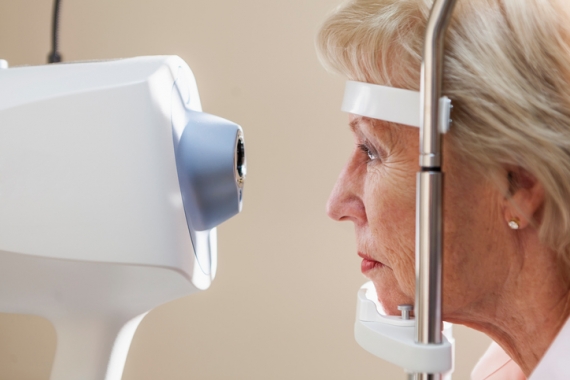How Glaucoma is Treated
If you have been diagnosed with glaucoma or have risk factors for the disease, find out how glaucoma is treated from the highly qualified experts from Elmquist Eye Group.
 Using state-of-the-art technology, Yasaira Rodriguez, MD, along with her highly skilled associates, Kate Wagner, OD, partner, and Nina Burt, OD, provide a full spectrum of eye care services in a comfortable and caring setting.
Using state-of-the-art technology, Yasaira Rodriguez, MD, along with her highly skilled associates, Kate Wagner, OD, partner, and Nina Burt, OD, provide a full spectrum of eye care services in a comfortable and caring setting.
What Causes Glaucoma?
Glaucoma is a disease that affects the optic nerve located at the back of the eye. It typically develops slowly and without any symptoms or pain. You may hear it called the “silent thief of sight” because as much as 40% of vision can be lost before a person begins to notice.
The optic nerve is made up of about 1 million nerve fibers, like an electrical cable that contains many wires. It is essential for vision because it carries images of the objects we see to the brain.
There is also a natural fluid in the eye, called aqueous humor, which is produced constantly to nourish the front of the eye between the lens and the cornea. This fluid helps to maintain a healthy level of pressure inside the eye and flows out through a microscopic drainage system.
If the drainage area (called the drainage angle) becomes blocked and is unable to drain properly, pressure within the eye can build up and push against the optic nerve fibers, causing blind spots to develop. Permanent vision loss results when the entire optic nerve is significantly damaged or destroyed.
Glaucoma Treatment
The goal of glaucoma treatment is to lower intraocular pressure (IOP) and stop the damage to the optic nerve, which carries visual information to your brain for processing.
Glaucoma can be treated with eye drops, oral medications, laser surgery, traditional surgery, such as trabeculectomy, or a combination of these methods. Recent advances in laser therapy have made the procedure so safe and effective that, for some patients, laser therapy is used instead of medications.
The type of treatment or surgery your doctor recommends will depend on the type and severity of your glaucoma and the general health of your eye.
Comprehensive dilated eye exams are extremely important in detecting glaucoma before it damages your vision. When detected and treated at an early stage, glaucoma can be controlled.
Glaucoma is a serious eye disease that can lead to vision loss. To find out how it is treated and explore the best treatment options, call the doctors at Elmquist Eye Group at (239) 936-2020 to schedule a glaucoma evaluation.
